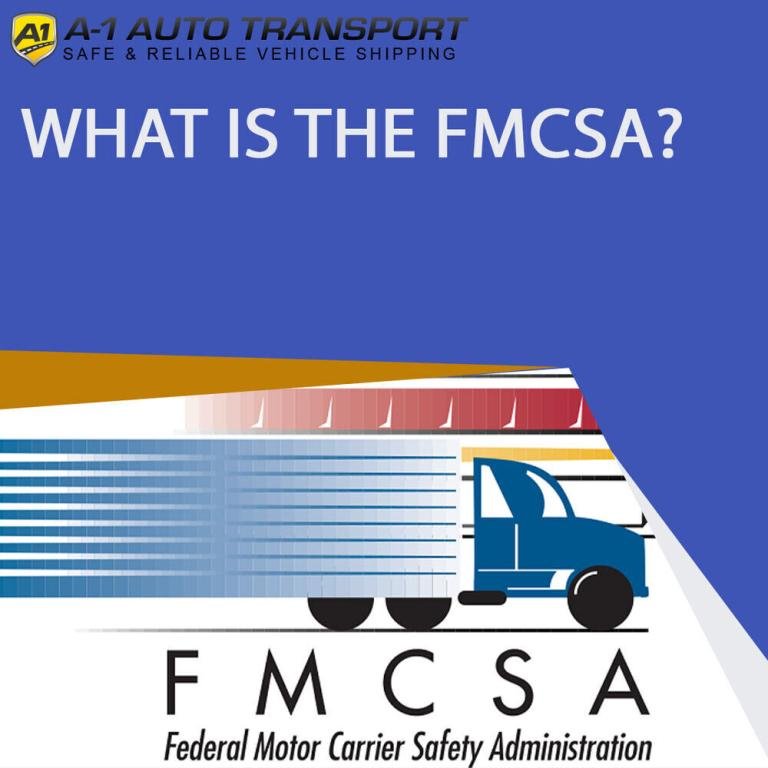What Is The FMCSA?
Published by Joe Webster.

The Federal Motor Carrier Safety Administration (FMCSA) is a government agency established to improve the safety of commercial trucking in the United States. Its operations encompass a wide range of research and policy, from creating licensing tests for commercial drivers to analyzing data on accidents and responding with new guidelines. In partnership with state and local law enforcement and other organizations, the FMCSA works to make sure that the carriers and individual drivers on the nation’s highways are functioning at the highest possible safety levels.
Registration With the FMCSA
In order to confirm that every carrier operating on an interstate basis within the United States is aware of national trucking requirements, registration with the Department of Transportation and the FMCSA is a prerequisite to receiving a USDOT number. This registration includes an audit and eighteen months of close attention to determine that the carrier knows and adheres to the administration’s safety standards. While a USDOT number is required for a carrier to conduct interstate business, many states require it even for business within the state. In addition to this basic registration, it also issues differing levels of “operating authority” based on the particulars of each carrier’s business and the area it serves.
Driver Training and Licensing
A major responsibility of the FMCSA is governing national standards for commercial driver’s license (CDL) requirements. Each state establishes its own specific set of tests and qualifications for a CDL, but it sets minimum levels to guarantee uniformity in training. The administration also sets minimum penalties and blood alcohol levels that the states must meet in prosecuting drivers who violate safe rules.
Research and Analysis
One of the most important functions is to study the data submitted by state authorities on accidents involving commercial vehicles. By analyzing this information and comparing it with data from past years, the administration can gauge the success of programs; identify widespread safety issues; and adjust policy as needed. Many of the statistics generated by these studies can be viewed publicly on the official website, which details not only the number of accidents reported each year, but also information on reviews, audits, and inspections of carriers and drivers. The FMCSA conducts research and analysis primarily through the CSA program (Compliance, Safety, and Accountability), which uses information provided by roadside inspections and crash reports to determine what steps should be taken to make the trucking industry safer. This takes the form of both large-scale changes in policy and contact with individual companies that display unsafe practices.
Rules and Regulations
Trucking companies must comply with the rules established by us. Some of these regulations apply to the operations of the agency as a whole, addressing topics such as employee safety, insurance requirements, training, and record keeping. Other rules govern vehicle emissions, equipment, inspections, and repairs. There is a further set of requirements, establishing guidelines for CDLs, record keeping, and the number of hours drivers may spend on the road. Following all of these regulations is essential for the legal operations of a carrier, and agents conduct regular inspections to make sure that a firm is following all rules.
Informational Programs and Campaigns
In addition to its regulatory functions, the FMCSA also manages efforts to spread information and awareness of driving safety topics through national campaigns. One of the largest of these is Ticketing Aggressive Cars and Trucks (TACT), a program that cooperates closely with state authorities to create highly visible reminders of rules such as seatbelt use and passing procedures. It largely focuses on the increased concerns connected with driving near tractor-trailers, such as tailgating and changing lanes unsafely. The CMV Safety Belt Program combats low safety belt use among commercial drivers, and the PRISM program was initiated to aggressively restrict the operations of carriers that show an alarming level of disregard for procedures.
A company that places a high priority on the safety of its drivers and others on the road values the efforts and involvement of the FMCSA. By carefully following the established rules of operation for firms, vehicles, and drivers, and by cooperating with inspections, carriers do their part to keep the roads safe.






 Share on Facebook
Share on Facebook Share on LinkedIn
Share on LinkedIn Share on Twitter
Share on Twitter




 Google
Google  Instagram
Instagram 



